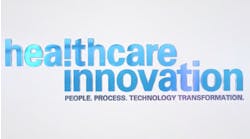The perceived value of medical devices and ancillary software systems is increasingly tied to how seamlessly they integrate with EHR platforms from Epic or Cerner. That was the case when CHI Franciscan Health in Tacoma, Wash., recently evaluated glucose management systems. One key reason the eight-hospital system chose to implement Glytec’s eGlycemic Management System (eGMS) was its robust integration with Epic.
The eGMS software-as-a-service solution offers access to proprietary insulin dosing algorithms, analytics and reporting, and automated surveillance and alerting. Tim Lynch, division senior director of pharmacy services and residency director at CHI Franciscan, said hospital systems need such glucose control solutions because of the complexity of the patients they see today.
“Many come in with co-morbidities, and multiple factors that impact glucose needs, so that lends to a need for tighter glucose management. Because these patients are so complex, it really involves coordinating care and providing consistency. That creates an environment where having the right tools can help us provide optimal care to our patients.”
CHI Franciscan had been using another system for a number of years. When it re-evaluated the market, it selected Glytec “because of its ability to interface with our EHR in a much more robust way than some of the other tools,” Lynch said. “Information comes across from Glytec into Epic and integrates in a fairly seamless way, so the information is readily available for the clinician.”
Waltham, Mass-based Glytec said its eGMS centers on the Glucommander suite of FDA-cleared, complex proprietary dosing algorithms for IV, subcutaneous, and pediatric insulin dosing. “The management of patients requiring insulin therapy is furthered by seamless electronic health record and connected device integration (SmartClick), robust analytics (GlucoMetrics), and surveillance (GlucoSurveillance) capabilities,” according to a company release. The eGMS interventional clinical decision support tools allow providers to standardize processes and personalize treatment across all areas of care, the company added.
The eGMS will support glycemic management in critical care and intensive care units as well as medical/surgical floors and emergency departments. CHI Franciscan’s team of hospitalists will be the prime user of this application, Lynch said. Other users are nurses and pharmacists, who are heavily engaged in assisting in management of glucose for patients. It is expected that CHI Franciscan will have more than 5,000 users of the eGMS Glucommander.
“CHI Franciscan has a glucose management team following quality indicators and our hope is that through the use of this tool we will be able to improve those metrics,” Lynch said. “We are in the process of putting the right players together to kick off our project and start launching as soon as possible.”

